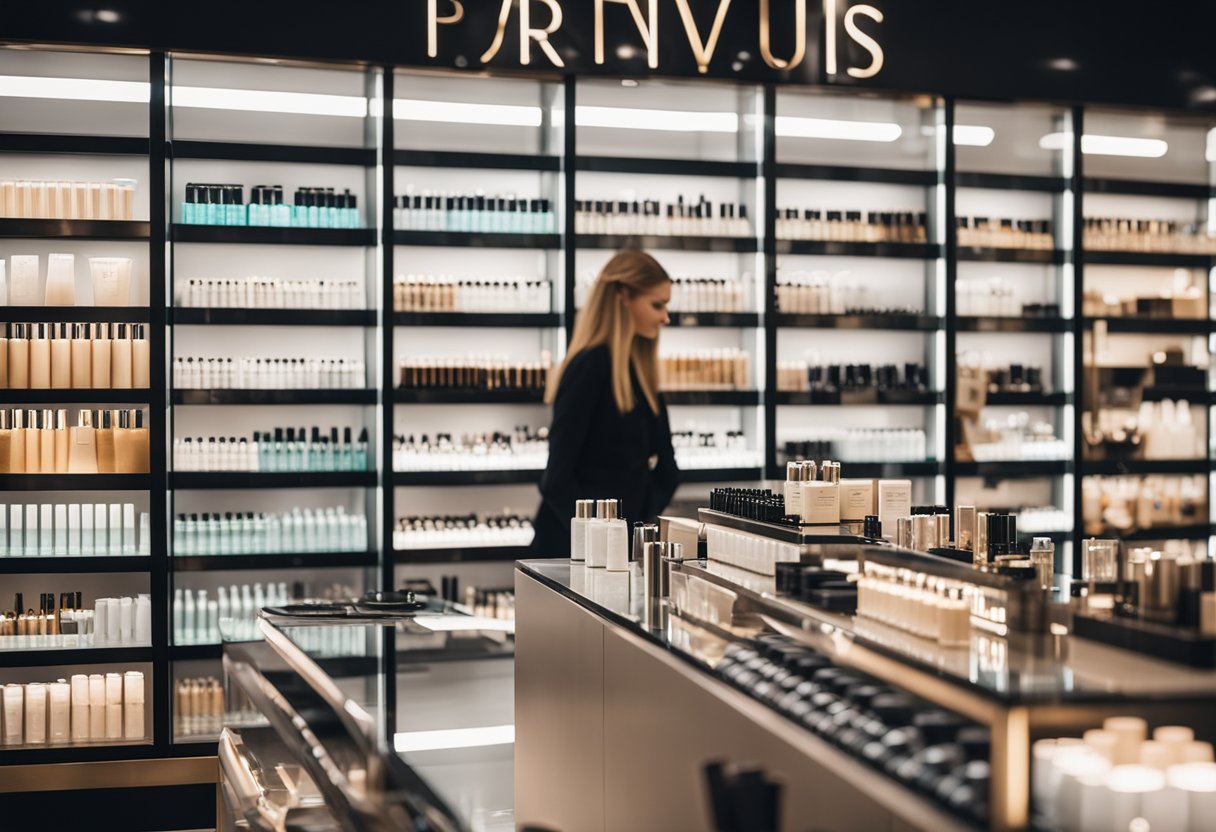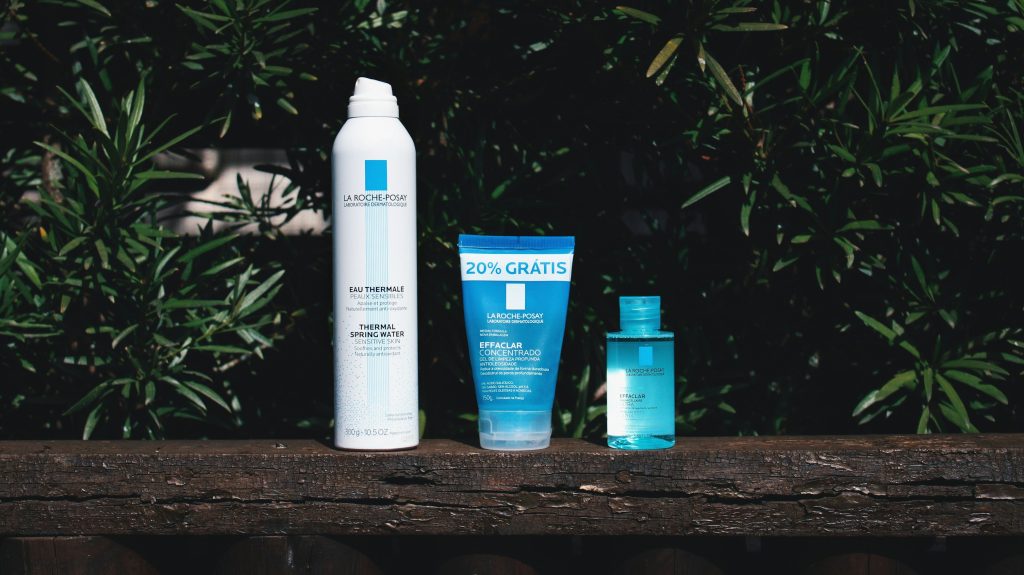Starting a beauty business can be an exciting and rewarding venture. Whether you’re passionate about makeup, skincare, or haircare, there are many opportunities to turn your passion into a successful business. However, starting a business can also be challenging and requires careful planning and preparation.
Before diving into the beauty industry, it’s important to research and understand the market. This includes identifying your niche and target audience, as well as staying up-to-date with industry trends and competitors. Additionally, legalizing your business and choosing a location are crucial steps in starting a beauty business. With the right mindset and preparation, you can turn your passion for beauty into a profitable business.
Identifying Your Niche
Starting a beauty business can be an exciting and rewarding venture, but it’s important to identify your niche before diving in. Your niche is your area of expertise, and it’s what sets you apart from your competitors. Here are some tips to help you identify your niche in the beauty industry:
Consider Your Passions and Expertise
When starting a beauty business, it’s important to choose something you’re passionate about and have some experience in. Think about the beauty products or services that you use and love. What sets them apart from others on the market? What do you know about the industry that others might not? Your passion and expertise can help you carve out a unique niche that will attract customers who share your interests.
Research the Market
Before settling on a niche, it’s important to research the market to see what’s already out there. Look at your competitors and see what they’re offering. Is there a gap in the market that you could fill? Are there any trends or emerging markets that you could tap into? Conducting market research can help you identify opportunities and avoid saturating an already crowded market.
Define Your Target Audience
Identifying your target audience is key to developing a successful niche. You can’t do business with everybody, especially if you’re just starting out. Think about the type of customer you want to attract. What are their interests and needs? What problems can you solve for them? Creating a customer persona can help you narrow down your target audience and develop products and services that cater to their specific needs.
Stay Flexible
Your niche may evolve as your business grows and changes. It’s important to stay flexible and open to new opportunities. Keep an eye on emerging trends and be willing to adapt your niche as needed. Staying nimble can help you stay ahead of the competition and keep your business thriving.
Identifying your niche is an important first step in starting a successful beauty business. By considering your passions and expertise, researching the market, defining your target audience, and staying flexible, you can develop a unique niche that sets you apart from the competition and attracts a loyal customer base.
Creating a Business Plan
Starting a beauty business requires careful planning and preparation. A well-written business plan is essential to help you stay organized, focused, and on track. Here are the three main sub-sections that you should include in your business plan.
Market Analysis
Before starting a beauty business, it’s essential to conduct market research to identify your target audience, competitors, and industry trends. This information will help you determine the demand for your services, pricing, and marketing strategies.
Here are some key questions to consider when conducting your market analysis:
- Who are your target customers?
- What are their needs and preferences?
- Who are your competitors?
- What are their strengths and weaknesses?
- What are the industry trends and forecasts?
Financial Planning
Financial planning is crucial to the success of your beauty business. You need to determine your startup costs, operating expenses, and revenue projections. This information will help you create a realistic budget and determine your pricing strategy.
Here are some financial aspects to consider when creating your business plan:
- Startup costs (e.g., equipment, supplies, rent, legal fees)
- Operating expenses (e.g., salaries, utilities, marketing, insurance)
- Revenue projections (e.g., sales, pricing, customer retention)
Marketing Strategy
A solid marketing strategy is essential to attract and retain customers. You need to identify your unique selling proposition (USP) and create a plan to promote your brand and services.
Here are some key components of a successful marketing strategy:
- USP (e.g., high-quality services, unique products, affordable pricing)
- Branding (e.g., logo, website, social media, business cards)
- Advertising (e.g., online ads, flyers, brochures, sponsorships)
- Customer retention (e.g., loyalty programs, referral incentives, excellent customer service)
In summary, creating a business plan is a critical step in starting a beauty business. It helps you identify your target audience, competitors, and industry trends, determine your financial needs, and develop a marketing strategy to promote your brand and services.
Legal Considerations
Starting a beauty business requires careful consideration of legal requirements to ensure compliance with regulations and avoid any legal issues. This section outlines some of the key legal considerations to keep in mind when starting a beauty business.
Business Structure
One of the first legal considerations when starting a beauty business is the choice of business structure. You have several options to choose from, including sole proprietorship, partnership, limited liability company (LLC), and corporation. Each structure has its own advantages and disadvantages, and you should choose the one that best fits your business needs.
A sole proprietorship is the simplest and most common business structure. It is easy to set up and manage, and you have complete control over the business. However, you are personally liable for any debts or legal issues that arise.
A partnership is similar to a sole proprietorship, but it involves two or more owners. Partnerships can be general or limited, and each partner is responsible for the business’s debts and legal issues.
An LLC is a popular choice for small businesses because it provides liability protection for the owners while maintaining the simplicity of a sole proprietorship. An LLC can have one or more owners, and it offers flexibility in terms of management and taxation.
A corporation is a more complex business structure that offers the most liability protection for the owners. It has a board of directors, officers, and shareholders, and it requires more formalities than other business structures.
Licenses and Permits
Another important legal consideration when starting a beauty business is obtaining the necessary licenses and permits. The specific requirements vary depending on your location, so it’s essential to research your state and local regulations.
In general, you will need a cosmetology license to operate a beauty business. This license ensures that you have the necessary training and skills to perform beauty services safely and effectively. You may also need a business license and other permits, such as a zoning permit, health permit, and fire permit.
It’s important to note that failure to obtain the necessary licenses and permits can result in fines, legal issues, and even the closure of your business. Therefore, it’s crucial to research and obtain all the required licenses and permits before opening your beauty business.
In conclusion, legal considerations are an essential aspect of starting a beauty business. By choosing the right business structure and obtaining the necessary licenses and permits, you can ensure compliance with regulations and avoid any legal issues that may arise.
Building Your Brand
When starting a beauty business, building a strong brand is crucial to stand out in the saturated market. A well-established brand can help you create a loyal customer base and attract new clients. Here are some key steps to building your brand:
Logo and Design
Your logo and design are the face of your brand. It should be unique, memorable, and visually represent your business. Consider hiring a graphic designer to help you create a logo and design that aligns with your brand’s values and mission.
Once you have your logo, use it consistently across all your marketing materials, including your website, social media, and packaging. This will help create brand recognition and make your business more memorable to potential customers.
Website Creation
In today’s digital age, having a website is essential for any business. Your website should be visually appealing, easy to navigate, and provide a clear message about your brand and products. Consider hiring a web designer to help you create a professional-looking website that reflects your brand’s personality.
Make sure your website includes key information such as your brand story, product descriptions, pricing, and contact information. You should also include high-quality images of your products and customer reviews to help build trust with potential clients.
Social Media Presence
Social media is a powerful tool for building your brand and connecting with potential customers. Identify which social media platforms your target audience is most active on and create accounts on those platforms. Make sure your profile and cover photos align with your brand’s visual style and include a clear description of your business.
Regularly post high-quality content that aligns with your brand’s values and resonates with your target audience. Engage with your followers by responding to comments and messages promptly and authentically.
By following these steps, you can build a strong brand that resonates with your target audience and helps your beauty business stand out in the crowded market.
Product Development
Developing your beauty product is one of the most important steps in starting your beauty business. Here are some sub-sections to consider when developing your product:
Sourcing Ingredients
Sourcing high-quality ingredients is essential to creating a successful beauty product. You want to make sure that your ingredients are safe, effective, and ethically sourced. Here are some tips for sourcing ingredients:
- Research suppliers: Do your research and find reputable suppliers who specialize in the ingredients you need.
- Quality control: Make sure to test your ingredients to ensure they are of high quality and safe for use.
- Ethical sourcing: Consider using ingredients that are sustainably sourced and support fair trade practices.
Packaging
Packaging is an important aspect of your product development. It not only protects and preserves your product but also serves as a marketing tool. Here are some tips for packaging your product:
- Functionality: Make sure your packaging is functional and easy to use.
- Branding: Your packaging should reflect your brand and be visually appealing to your target audience.
- Sustainability: Consider using eco-friendly packaging materials that are recyclable or biodegradable.
By following these tips, you can create a high-quality beauty product that meets the needs of your target audience.
Setting Up Shop
Congratulations! You’ve decided to start your own beauty business. Now it’s time to set up shop. There are two main options for setting up shop: a physical location or an online store.
Physical Location
A physical location can be a great way to build a loyal customer base and establish your brand in the community. Here are some things to consider when choosing a location for your beauty business:
- Demographics: Consider the age range, income level, and interests of the people in the area you are considering. Will they be interested in the services you offer?
- Competition: How many other beauty businesses are in the area? Are they similar to your business or do they offer different services?
- Visibility: Is the location visible from the street? Will people be able to easily find your business?
- Accessibility: Is there ample parking? Is the location easily accessible by public transportation?
Once you’ve found the perfect location, it’s time to start thinking about the physical space. Here are some things to consider:
- Layout: Will the layout of the space work for the services you offer? Will you need to make any modifications?
- Equipment and Supplies: What equipment and supplies will you need to get started? Consider things like salon chairs, mirrors, sinks, and styling tools.
- Decor: What kind of atmosphere do you want to create? Will you need to hire an interior designer to help you create the look you want?
Online Store
An online store can be a great option if you want to reach a wider audience and keep your overhead costs low. Here are some things to consider when setting up an online store:
- Platform: There are many platforms to choose from when setting up an online store, including Shopify, WooCommerce, and BigCommerce. Consider which platform will work best for your business.
- Website Design: Your website design is important when it comes to creating a professional and trustworthy online store. Consider hiring a web designer to help you create a website that looks great and is easy to navigate.
- Product Listings: Make sure your product listings are clear and detailed. Include high-quality photos, product descriptions, and pricing information.
- Shipping and Returns: Make sure you have a clear shipping and returns policy in place. Consider offering free shipping or free returns to entice customers to make a purchase.
No matter which option you choose, setting up shop is an exciting step in starting your own beauty business. Good luck!
Marketing and Advertising
When starting a beauty business, it’s crucial to have a solid marketing and advertising strategy to attract and retain customers. Here are two main sub-sections to consider: SEO and Online Marketing, and Traditional Advertising.
SEO and Online Marketing
Search Engine Optimization (SEO) is the process of optimizing your website to rank higher on search engines like Google. Here are some tips to improve your online presence:
- Conduct keyword research to understand what potential customers are searching for.
- Optimize your website’s content by including relevant keywords in page titles, descriptions, and throughout the content.
- Build backlinks to your website by creating high-quality content that other websites will want to link to.
- Use social media to connect with potential customers and promote your brand. Consider running ads on social media platforms like Facebook and Instagram to reach a wider audience.
Traditional Advertising
While online marketing is important, don’t forget about traditional advertising methods. Here are some ideas to consider:
- Print ads: Advertise in local magazines or newspapers to reach a local audience.
- Flyers and brochures: Create eye-catching flyers and brochures to distribute at local events or in high-traffic areas.
- Radio and TV ads: Consider running ads on local radio or TV stations to reach a wider audience.
- Sponsorship: Sponsor local events or organizations to increase brand awareness and support the community.
Remember to track the effectiveness of your marketing and advertising efforts and adjust your strategy accordingly. With a well-planned marketing and advertising strategy, you can attract and retain customers and grow your beauty business.
Customer Service

Providing excellent customer service is crucial for the success of any beauty business. When customers feel valued and appreciated, they are more likely to return and recommend your services to others. Here are some key areas to focus on when it comes to customer service:
Policies and Procedures
Having clear policies and procedures in place can help ensure that your customers have a positive experience and that your staff knows how to handle any issues that may arise. Some important policies to consider include:
- Cancellation policy: Clearly outline your cancellation policy, including any fees or penalties that may apply.
- Refund policy: Let your customers know what your policy is on refunds or exchanges.
- Late policy: If your business operates on an appointment basis, make sure your customers know what will happen if they arrive late.
- Privacy policy: Explain how you will handle your customers’ personal information and ensure their privacy.
Make sure your policies are clearly displayed on your website and in your place of business, and that your staff is trained to explain them to customers when necessary.
Training Staff
Your staff is the face of your business, so it’s important that they are well-trained in customer service. Here are some tips for training your staff:
- Role-playing: Practice scenarios with your staff to help them handle difficult situations.
- Active listening: Train your staff to actively listen to customers and respond appropriately.
- Empathy: Encourage your staff to put themselves in the customer’s shoes and understand their needs.
- Product knowledge: Make sure your staff is knowledgeable about your products and services so they can answer any questions customers may have.
By focusing on customer service and ensuring that your policies and procedures are clear and your staff is well-trained, you can create a positive experience for your customers and set your beauty business up for success.
Scaling Your Business
Once your beauty business is up and running, the next step is to scale it. Scaling your business means expanding it to reach a wider audience, increase your revenue and profits. Here are some strategies to help you scale your beauty business:
Diversify Your Product Line
Offering a variety of products is one way to scale your business. You can add new products that complement your existing line or create a new line altogether. This allows you to appeal to a wider audience and generate more revenue.
Create a Subscription Model
A subscription model can create a steady flow of revenue in your business while simultaneously rewarding your most loyal customers. This works best for skincare and haircare brands, as those are replaced more frequently. You can offer monthly or quarterly subscriptions that include your products and/or services.
Innovate Constantly
To stay ahead of the competition, you need to be constantly innovating. Introduce new beauty products and services, change your marketing strategy, and find new ways to reach your target market. If you don’t, you risk becoming irrelevant. If you’re not evolving, you’ll quickly be left behind.
Expand Your Reach
Expanding your reach means reaching out to new customers and markets. You can do this by attending trade shows, collaborating with other businesses, or partnering with influencers. You can also explore new sales channels like e-commerce platforms or brick-and-mortar stores.
Hire Employees
Hiring employees can help you scale your business by allowing you to delegate tasks and focus on strategic planning. You can hire employees to help with production, marketing, customer service, and more.
Scaling your beauty business takes time and effort, but it’s worth it in the end. By diversifying your product line, creating a subscription model, innovating constantly, expanding your reach, and hiring employees, you can take your business to the next level.
Angela Irwin is a branding and design enthusiast with a Bachelor of Fine Arts in Graphic Design from Meadowbrook College. As a writer at Logocreator.io, she shares her expertise on logo design, graphic trends, and effective branding strategies, helping businesses create impactful visual identities.



